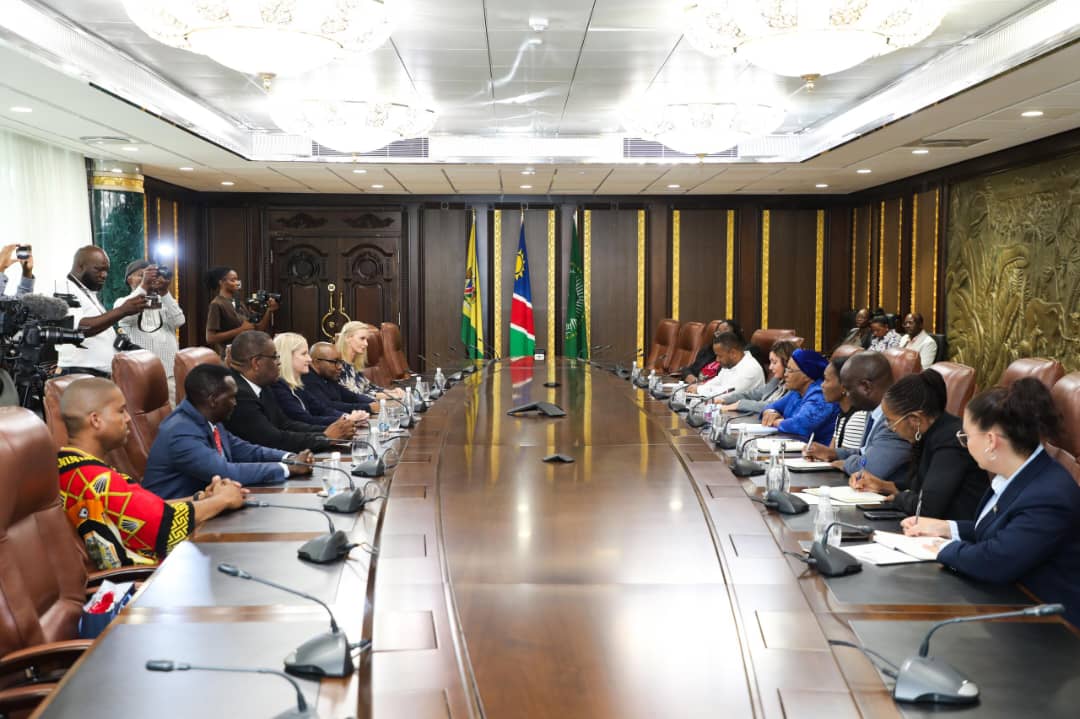LONDON – The Treasury is the UK government’s finance ministry. There are many other government departments, but in the years since 1997, all have been turned into subsidiaries of the Treasury, the power base of Prime Minister Gordon Brown when he was chancellor.
His ambition was to micro-manage in every one of them. Today we saw the true cost of this disastrous experiment. All major countries have serious problems with their government deficits, but the most entrenched of Britain’s are home-made.
Britain’s public finances, which had been deteriorating for years, are wrecked. Even on his successor’s rose-tinted projections, they will not return to a balanced Budget for at least the next nine years.
Given that no Treasury projection for more than three or four years out bears any resemblance to reality, and given the there will have been at least two elections between now and then, this is a post-dated cheque drawn on the Bank of Fantasy.
Alistair Darling has learned at the feet of the master of obfuscation, double counting and footling detail. So we heard all about the green recovery, from a government that sees no contradiction between raising the cost of fuel and granting tax concessions to North Sea explorers. There may be more oil there, but for the state, this is now a dry well.
The Chancellor did not dare say what he and his advisers really think about the green-tinted scheme wished on them by Peter Mandelson, the Trade Secretary, to scrap your old banger for 2 000 pounds towards a new one.
At least they managed to limit the damage to a single year. If your car is not 10 years old by next March, it will be junked in the ordinary way.
Junk is what the last Treasury forecast has now become. It’s barely five months since Darling’s last emergency package. It looked like a work of fiction then, and now there’s no doubt. In his Budget a year ago, he was expecting to borrow 43 billion pounds in 2008/09, crowing that the previous peak was much higher, at 7,8 per cent of gross national product. The sum would come down after that.
By November, there was no crowing. The projected borrowing requirement was 78 billion pounds, and was going up, to 118 billion in the following year, not down. Even those horrible figures have now been left far behind. Last year he needed 90 billion pounds, and in 2009/10, he says, it will be 175 billion pounds, or 12,4 percent of GNP.
The forecast is then for a fall, although not by much. In 2010/11 he – or his successor – will still be 173 billion pounds short of balancing the books.
So in three years the government will have borrowed 5 600 pounds for every man, woman and child in the country. That’s over 20 000 pounds for what the prime minister routinely calls the average hard-working family.
In any business, from a corner shop to a multi-national, this arithmetic would be immediately fatal to those who had put it forward. Their credit would be ruined, and the business’s credit could not be restored while they were still in charge.
Britain’s credit is ultimately expressed in the external value of sterling, as Brown himself has said. The pound has already been devalued informally by a greater amount than the two previous formal devaluations in 1967 and 1992.
The short-term effects have been mostly benign, but the possibility of a flight from the currency is always there. This Budget makes it a little more likely.
In this context, everything else is detail. The biggest detail is the attack on what Darling describes as ‘those who gained the most’. This is a sop to his fractious party in parliament.
From next April anyone earning over 150 000 pounds a year will be paying 51,5 per cent on every extra pound earned, the highest rate in Britain for 21 years. They will also lose their tax-free allowances and half the tax relief on their pension contributions.
The small print betrays that the government is relying on these measures to bring in seven billion a year, sometime in the middle distance. This looks as unconvincing a forecast as any in Darling’s portfolio. Well-paid labour is highly mobile nowadays, and will go where the prospects are high and the taxes low.
Nothing else in the 250 pages of the Budget Report is worth a row of green beans. Even the Treasury can’t put a price on the measure to reduce VAT on children’s car seat bases.
Despite its name, ‘enhanced capital allowances’ will actually raise more money – 10 million pounds, or enough to run the government machine for about eight minutes.
Thrashing around for something cheerful to say, Darling kept telling us how much worse off other people were. To assert that ‘we and other countries have been battling against a succession of shocks which have hit the world economy’ suggests that our luckless planet had crossed orbits with a large economic meteorite.
The former chancellor, now prime minister, assumed the sun would shine forever, and that he had somehow managed to suspend the usual rules of economics – or as he himself put it, ‘no more boom and bust.’ In recent years, he produced growth by borrowing, pouring the money into the public services for ever-decreasing returns.
Each time he borrowed more than he had forecast. Now the bill has arrived, and it’s plain that neither he nor his successor has the slightest idea of what to do. Marc Ostwald of Monument Securities summed it up within minutes: ‘a Budget of tinkering with the public sector financial sector meltdown, with no substance or obvious strategy whatsoever.’
One day the Treasury will remember how to mind its own business, under a chancellor who grasps that until the public finances are put in order, nothing else will go right. The longer the wait, the worse will be the reckoning.
-Nampa-Reuters
Stay informed with The Namibian – your source for credible journalism. Get in-depth reporting and opinions for
only N$85 a month. Invest in journalism, invest in democracy –
Subscribe Now!










